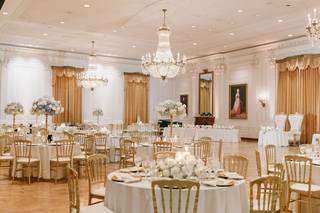June 30th, 1977: VP Carter meets with Pinochet

US Vice President Jimmy Carter greeted Chilean President General Augusto Pinochet at the Number One Observatory Circle (Residence of the US VP) in Washington, DC for a bilateral meeting.
The meeting comes as tensions between Argentina & Chile continue to escalate with political & militarily rhetoric on both sides. Pinochet, who voiced strong attacks at the human rights campaign of the Brown administration in recent months due to threats of cutting off US military & economic aid because of what the Brown administration voiced egregious human rights violations against political opponents, critics & others who spoke out against the Pinochet dictatorship.
However, Pinochet & Carter held a closed door meeting with their respective interpreters which lasted for more than 3 HRS during the bilateral meeting. Of course, President Jerry Brown was on his fourth overseas trip (more on that later in Chapter VII) & Carter would be the one doing the skilfull personal diplomacy efforts instead.
US Secretary of State Walter Mondale & US Secretary of Defense Benjamin O. Davis, Jr., both met with Pinochet respectively in separate meetings. Pinochet personally thanked Davis & the US Defense Department for approving the request of military aid to Chile in light of the ugly diplomatic tensions with Argentina.

US Vice President Jimmy Carter greeted Chilean President General Augusto Pinochet at the Number One Observatory Circle (Residence of the US VP) in Washington, DC for a bilateral meeting.
The meeting comes as tensions between Argentina & Chile continue to escalate with political & militarily rhetoric on both sides. Pinochet, who voiced strong attacks at the human rights campaign of the Brown administration in recent months due to threats of cutting off US military & economic aid because of what the Brown administration voiced egregious human rights violations against political opponents, critics & others who spoke out against the Pinochet dictatorship.
However, Pinochet & Carter held a closed door meeting with their respective interpreters which lasted for more than 3 HRS during the bilateral meeting. Of course, President Jerry Brown was on his fourth overseas trip (more on that later in Chapter VII) & Carter would be the one doing the skilfull personal diplomacy efforts instead.
US Secretary of State Walter Mondale & US Secretary of Defense Benjamin O. Davis, Jr., both met with Pinochet respectively in separate meetings. Pinochet personally thanked Davis & the US Defense Department for approving the request of military aid to Chile in light of the ugly diplomatic tensions with Argentina.
Last edited:





